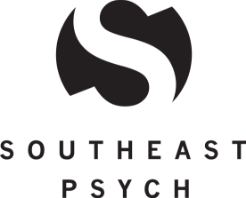As a parent, you know your child better than anyone. As they grow, you may notice changes— the way they spend more time alone in their room or tell you less about their day, growing frustration with school, or tears that seem to come out of nowhere. When this occurs, it can be hard to know what’s typical and what might be a sign that your child needs professional support.
At Southeast Psych, we work with parents and caregivers across Charlotte who want to support their child but aren’t always sure where to start. Whether it’s navigating big feelings, improving academic performance, or addressing social or behavioral challenges, child therapy can provide the tools kids need to thrive.
What Is Child Therapy?
Child therapy is an approach to therapy that holds a child’s age and developmental level in mind as they learn to process emotions, develop coping mechanisms, and build healthy relationships. Therapy isn’t just about solving problems—it’s about supporting the mental, emotional, and behavioral development of your child in a safe and engaging environment.
Therapists use different types of therapy depending on a child’s age, personality, and needs. Common approaches include:
- Cognitive Behavioral Therapy (CBT): Helps children understand their feelings, recognize unhelpful thoughts, and develop healthier ways to respond to both. CBT is a long-standing evidence-based treatment approach that is especially useful for anxiety, depression, and behavior issues.
- Play Therapy: Uses toys, games, and creative activities to help younger children express and process complex emotions.
- Family Therapy: Can involve the whole family, but when the issue of concern involves a child, this approach includes parents and caregivers in therapy sessions to improve communication and create a more supportive home environment.
Signs Your Child May Benefit from Therapy
Children experience stress and emotional ups and downs just like adults—but they may show it differently. Here are some of the common signs to look out for, and when present, serve as indicators that a child may benefit from therapy:
- Excessive worry or fear
- Difficulty managing anger or frequent emotional outbursts
- Trouble making or keeping friends
- Sudden changes in sleep, appetite, or energy
- Ongoing sadness or comments that indicate feeling discouraged or hopeless
- Negative personalized comments suggesting low self-esteem
- Avoiding school/schoolwork or falling behind academically
- Difficulty adjusting to life changes like divorce or a family move
You might also notice them asking deep or anxious questions, becoming overly attached, or pulling away from things they once enjoyed. It’s important to pay attention to these shifts—they may be your child’s way of saying, “I need help.”
How Therapy Helps Children Grow
Working with a child therapist isn’t about labeling or fixing—it’s about empowering. Therapy can help children:
- Learn to identify and talk about their thoughts and feelings
- Build problem solving and emotion regulation skills
- Develop skills that affect peer relationships and interactions with others
- Improve academic performance through better focus and self-confidence
- Develop coping mechanisms for stress and anxiety
One of the biggest benefits of therapy is that it gives children a neutral, supportive space to explore emotions and build resilience. With consistent support, many children gain confidence, self-awareness, and the skills they need to handle life’s ups and downs.
Your Role as a Parent or Caregiver
You play a key role in your child’s therapeutic journey. In fact, the more engaged you are, the more impactful therapy can be. Your child’s therapist might:
- Involve you in therapy sessions
- Provide guidance on how to help your child use tools and strategies between therapy sessions
- Provide parenting strategies and communication tools
- Offer feedback and updates on your child’s progress
Together, you and your child’s therapist become a team—working toward the same goal: supporting your child’s emotional health and helping them feel safe, understood, and empowered.
When to Reach Out
If you’re wondering whether your child’s challenges are “serious enough” for therapy, trust your instincts. You don’t have to wait for things to get worse to ask for help. Seeking support early can make a lasting difference.
Start by asking yourself:
- Are these behaviors affecting my child’s daily life or happiness?
- Is my child struggling to express or manage their feelings?
- Am I feeling overwhelmed trying to help them on my own?
If the answer to any of these is yes, reaching out to a mental health professional who works with children can be a powerful next step.
Final Thoughts
No parent has all the answers. What matters is being willing to ask questions, listen, and seek help when it’s needed. Therapy can offer your child not only support—but hope, healing, and growth.
If you’re concerned about your child’s emotions, behaviors or overall well-being, Southeast Psych in Charlotte is here to help. Our clinical team includes licensed mental health professionals who specialize in child and adolescent therapy. We use evidence-based approaches to therapy, meet kids right where they are, and collaborate with parents and caregivers to support your child.
Let’s work together to help your child thrive.
